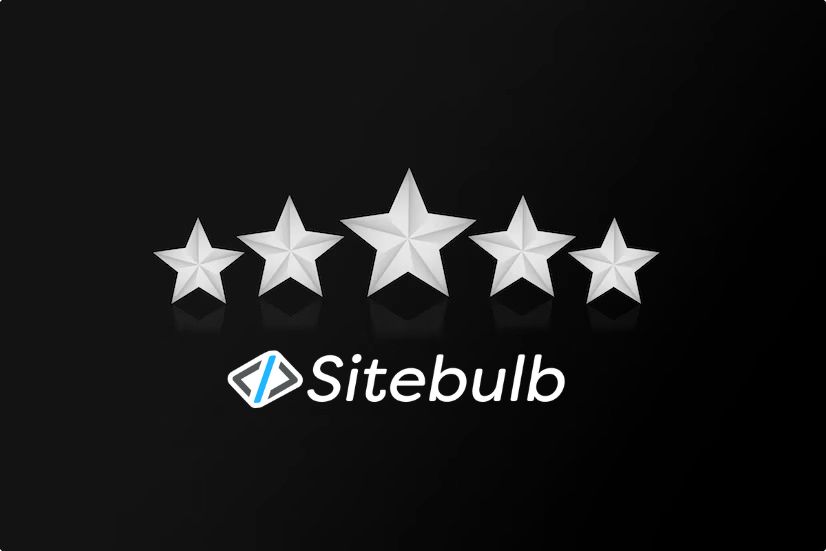When running technical SEO audits for your website, there are many different SEO tools like DeepCrawl, Botify, and Screaming Frog.
However, we discovered a new desktop-based crawler called Sitebulb that deserves a mention among these industry standards.
Here in this article we will review the Sitebulb, where we’ll cover all the different options the tool offers and is it worth investing in.
What Is Sitebulb?
Sitebulb is a desktop website crawler, meaning it is a standalone application that you run on your computer. Sitebulb can crawl websites and offer actionable insights and help you enhance organic ranking positions and traffic.
What Does Sitebulb Do?
While there are a number of crawling tools, Sitebulb stands out for its elegant dashboard and highly actionable insights.
Sitebulb aims to illustrate how your website is “crawler-friendly” and tells you how search engines view your website. Sitebulb will make sure the search engines crawl and index content for search engine optimization.
The Crawl Report from Sitebulb helps you to develop an overview of how easily you can crawl the site and what sorts of data crawlers are seeking. For instance, any broken redirects or internal and external connections will be flagged by Sitebulb.
The ‘crawl depth’ as well as status codes and server answer codes are also shown by Sitebulb. So you get a detailed view of your site layout and an in-depth glance at your crawl effectiveness.
Is There A Free Trial?
Sitebulb does offer a free 14-day trial, Here you can find the free trial https://sitebulb.com/download/.
Sitebulb Pricing
After a free trial, Sitebulb asks you to pay for its service. The Lite package costs $13.5/month and includes:
- 10,000 URLs per audit
- Basic SEO Audit
- 138 hints
- Basic PDF reports
- Audit Scores
- Duplicate Content
- JavaScript Crawling
- Crawl Maps
The Pro package costs $35/month and includes:
- 500,000 URLs per audit
- Advanced SEO Audit
- 315 Hints
- Customized PDF Reports
- Compare Audits & History
- Page Speed & Mobile Friendliness
- Front-end & Code Coverage
- Search Console Keywords
Sitebulb Features
Here’s are the Sitebulb features:
- Priority Tips: Save time checking into issues with more than 300 pre-processed checks on content optimization
- Verification scores: Provide verification scores with the highest significance. Sitebulb uses audit ratings to contextualize audit outcomes and build executive summaries for clients and managers
- Flexible PDF reports: The ideal PDF report is produced. For various use cases, configure the PDFs: sales prospecting, consumer reports or C-suite executives.
- Comparison of audits: Tracking patterns and past shifts between audits to measure and graphically display changes
- Data Visualization: To help articulate abstract concepts easily, use visualizations to rapidly spot themes and integrate maps.
- URL Explorer: You can use URL explorer to make custom reports where you filter, sort, and dig into your crawl data
- Check massive websites and limitless domains: Conduct detailed assessments, regardless of scale or quantity, for all of your clients
Auditing Your Website
When starting a new project, you must name it and include the website URL you want to crawl. You’ll have several different options when running your audit, or just run with the default settings and start the crawl.
When setting up your audit, you can add more data and check for:
- Page Speed, Mobile Friendly and Front-end
- Page Resources
- International
- AMP
- Google Analytics data
- Google Search Console data
- Structured Data Extraction
- Content Extraction/Content Search
- Crawl Website, XML Sitemaps or a URL list
- Schedule Audit to run at a certain time
Sitebulb will provide a live capture of the URLs, how long the audit will take, and the types of URLs that are being crawled.
The crawl rate is rather speedy, averaging 7 URLs per second depending on the settings you choose when setting up the initial audit.
Audit Overview
Once the audit is completed, Sitebulb will provide several different scores and hints, including:
- Audit Score
- SEO Score
- Security Score
- Page Speed Score
Sitebulb will show you different Content Types (CSS, HTML, Image, Javascript); crawl depth of the URLs that Sitebulb discovered; and different status codes (2xx, 3xx, 4xx, 5xx, forbidden, or disallowed URLs).
Under the URLs Tab, Sitebulb will break down the SEO basics for each page, showing the following information:
- URL Rating
- URL Encryption
- HTTP Status
- Content Type
- Meta Title/Length/# Of Titles
- Meta Description/Length/# Of Descriptions
- H1 Tag/Length/# Of H1s
- Number of words, sentences, and paragraphs on your pages
- How long it will take to read your content
- How easy it is to read your content
- Sentiment – emotional emphasis of how your page messaging is conveyed
- Indexability Status
- How the crawler discovered your URLs
- URL Source (anchor, canonical link, etc…)
- Parent URL
Sitebulb will also provide several “hints” or optimization opportunities to help improve your website, which is very helpful.
Hints could include updating meta descriptions/meta titles, or more technical work to improve your website’s security/page speed.
The tool will also outline which issues should be tackled based on priority, they’re critical, high, medium, or low.
System Requirements For Sitebulb
Sitebulb is available on both Windows and Mac. Here are the system requirements for each:
Windows System Requirements: System must have at least 4GB of RAM and a 64-bit version of Windows 7/8/10/11.
Mac System Requirements: System must have at least 4GB of RAM and a 64-bit version of MacOS.
Conclusion
Sitebulb is a robust crawling tool that every SEO should check out. It offers a lot of similar functionality as Deepcrawl, Screaming Frog, and Botify. Sitebulb gives data in a meaningful way and helps webmasters to improve their websites and make SEO friendly.
It’s also relatively cheap and only costs $11.25 per month for the Lite package.
Also Read:
